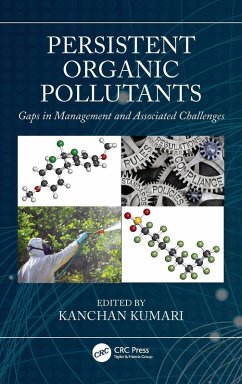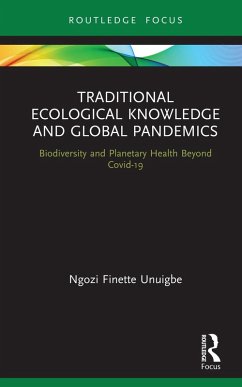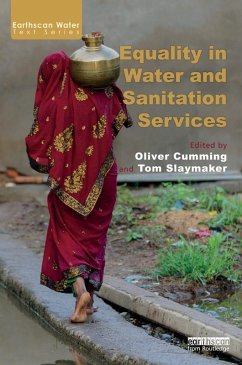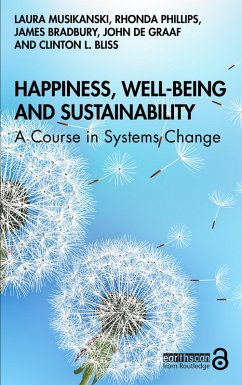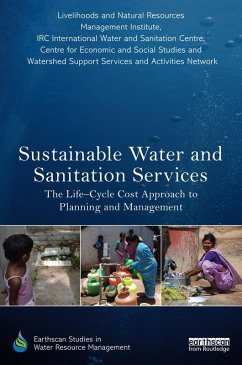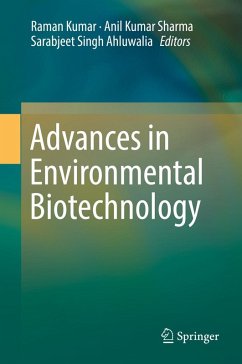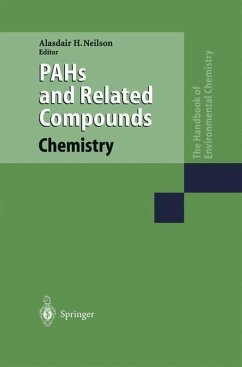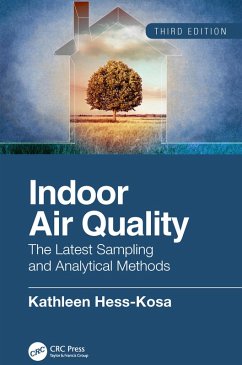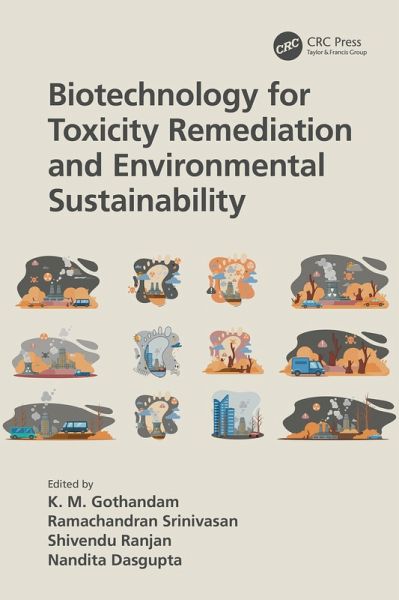
Biotechnology for Toxicity Remediation and Environmental Sustainability (eBook, PDF)
Versandkostenfrei!
Sofort per Download lieferbar
157,95 €
inkl. MwSt.
Weitere Ausgaben:

PAYBACK Punkte
79 °P sammeln!
Environmental issues such as ozone layer depletion, overpopulation, biodiversity loss, global warming, natural resource depletion, and so on affect every organism on the planet somehow. Environmental biotechnology applications can help to protect and restore the quality of the environment. The goal is to use biotechnology with other technologies and safety procedures to prevent, arrest, and reverse environmental degradation. Environmental biotechnology is one of the most rapidly expanding and practically useful scientific fields. Biochemistry, physiology and genetic research of microorganisms ...
Environmental issues such as ozone layer depletion, overpopulation, biodiversity loss, global warming, natural resource depletion, and so on affect every organism on the planet somehow. Environmental biotechnology applications can help to protect and restore the quality of the environment. The goal is to use biotechnology with other technologies and safety procedures to prevent, arrest, and reverse environmental degradation. Environmental biotechnology is one of the most rapidly expanding and practically useful scientific fields. Biochemistry, physiology and genetic research of microorganisms can be converted into commercially available technologies for reversing and preventing further deterioration of the earth's environment. Solid, liquid, and gaseous wastes can be altered either by recycling new by-products or by purifying to make the end product less harmful to the environment. Biotechnology for Toxic Remediation and Environmental Sustainability discusses the removal of pollutants by absorption techniques and recycling wastewater into valuable by-products and biofuels by microorganisms. Moreover, this book also addresses corrosion prevention by green inhibitors, uses electrochemical systems for renewable energy and waste recycling using microbes, and recent food safety and security trends in the food microbiome. On the other hand, this book also discusses therapy and treatments against antibiotic-resistant bacteria, anti-cancer and pharmacological properties of thymoquinone and preventive properties of zinc nanoparticles against stress-mediated apoptosis in epithelial cells.
Features
Features
- Covers all aspects of Biotechnological application in the environment
- Discusses sustainable technology for the wastewater treatment and value-added products from wastewater
- Focuses on research activities Green corrosion inhibitors, bio-electrochemical systems, food safety and security, and antimicrobial resistance
The book is a valuable resource for the undergrad and graduate students, doctoral and post-doctoral scholars, industrial personnel, academicians, scientists, researchers, and policymakers involved in understanding and implementing applications of biotechnology for environmental toxic remediation.
Dieser Download kann aus rechtlichen Gründen nur mit Rechnungsadresse in A, B, BG, CY, CZ, D, DK, EW, E, FIN, F, GR, HR, H, IRL, I, LT, L, LR, M, NL, PL, P, R, S, SLO, SK ausgeliefert werden.





